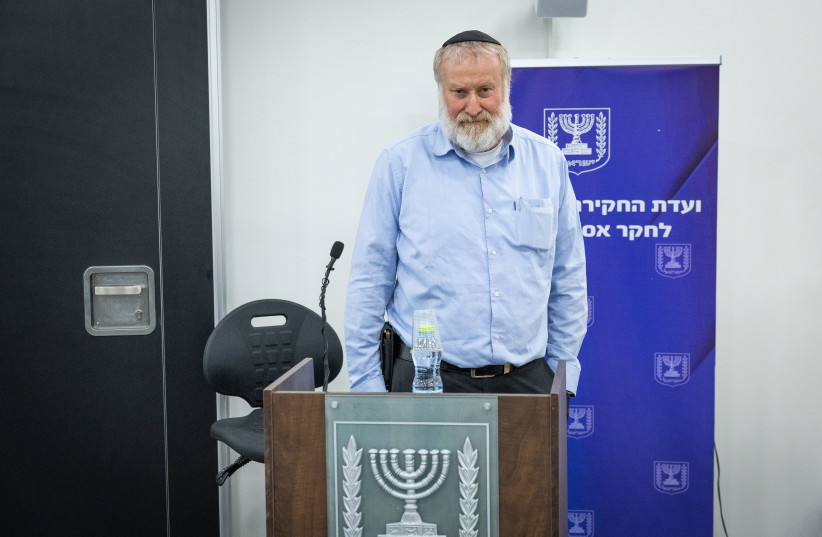Former Attorney-General Avichai Mandelblit testified before the Mount Meron Disaster Investigation Committee on Tuesday, in a tense cross-examination by Prime Minister Benjamin Netanyahu lawyer Rina Miyuchas.
Mandelblit was asked why he didn't order a police investigation into the crowd crush that killed 45 pilgrims on Mount Meron in 2021, saying that it was for the police to decide. However, the Netanyahu lawyer noted that Police Chief Kobi Shabtai had previously testified that the attorney-general needed to provide permission for the police to investigate.
Mandelblit also said that they had stopped criminal investigation because it would have interfered in the work of the investigation committee. The committee had requested that they not investigate at the same time as the panel inquiry operated, said Mandelblit.
Miyuchas noted that Mandelblit was asked for assistance in collecting investigation materials for the committee when it was first formed.
"I don't personally collect materials myself," Mandelblit said. Mandelblit argued that the attorney-generals are not as active administratively as the attorney might think.

Conflict at the hearing
Mandelblit's testimony, which came at the request of Netanyahu's legal team, saw tension between the attorney and former attorney-general. Mandelblit complained that he wasn't allowed to properly finish his questions, and that Miyuchas was interrupting him. Miyuchas at one point described Mandelblit's answers as attempts to "lecture" and that he wasn't answering the questions.
The Meron committee issued warnings to several political leaders about how the inquiry into the largest civilian disaster in Israel's history might find them culpable.
Netanyahu is expected not testify before the committee during the current "warning" phase, but did testify in the previous phase of investigation prior to the culpability warnings. He will likely be represented by his lawyer in further testimony.
The committee has found that there were severe issues with the organization and problems in care for Mount Meron infrastructure leading up to the disaster, and warnings were ignored by authorities. The committee issued recommendations for future pilgrimages to the tomb of Rabbi Shimon bar Yochai, including limits on how many people can attend, and building only one traditional bonfire, as opposed to many.
